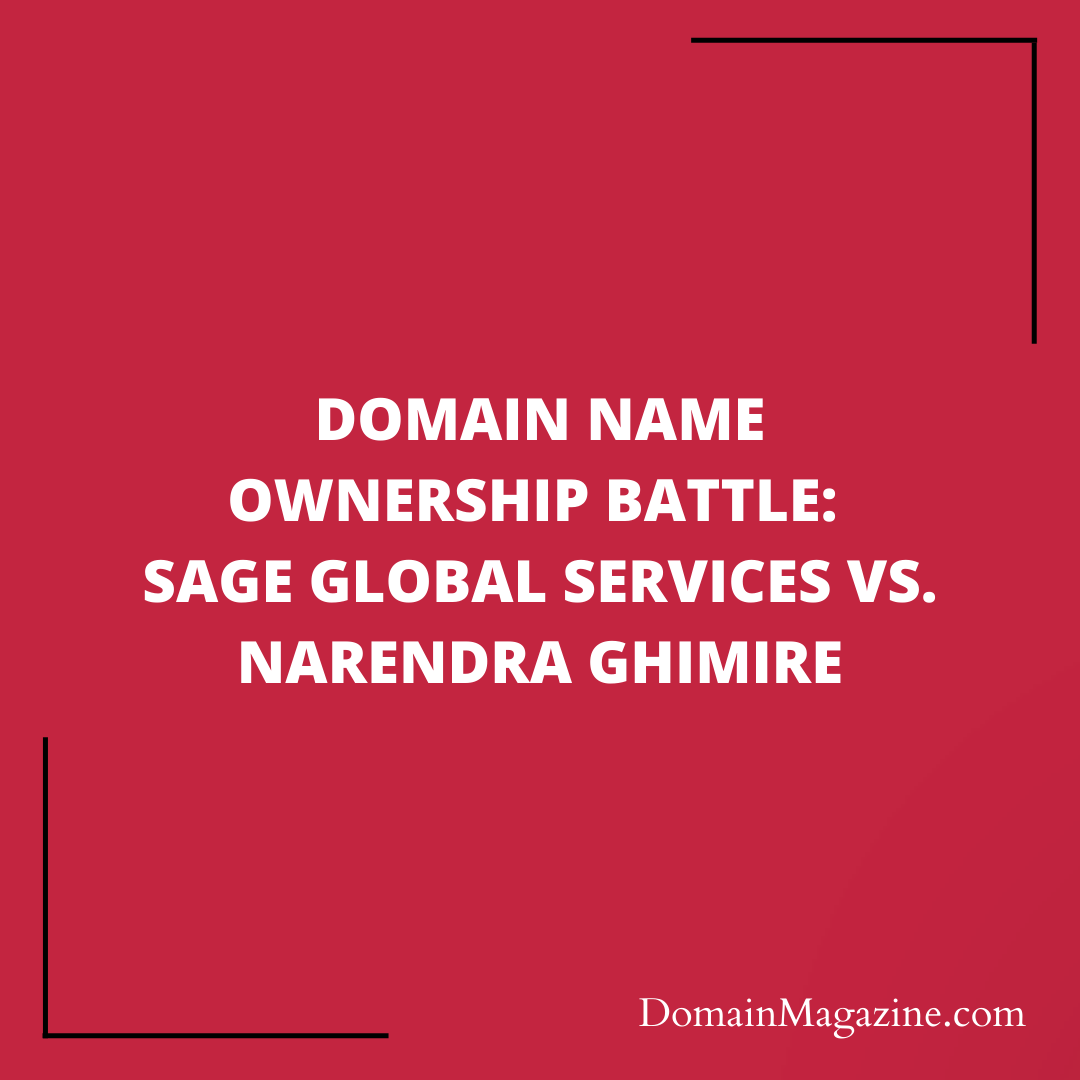WIPO (World Intellectual Property Organization) judgments play a crucial role in determining rightful ownership and trademark infringement. A recent case, Sage Global Services Limited v. Narendra Ghimire, has garnered significant attention in the legal community. Let’s delve into the details of this case and the key takeaways from the panel’s decision.
Background:
Sage Global Services Limited, a well-established provider of technology solutions for businesses, initiated this case against Narendra Ghimire, a domain name investor with a history of buying and holding domain names for resale. The dispute centered around the domain name Sage.ai. Sage Global Services Limited argued that the respondent had opportunistically registered the domain name, infringing upon their SAGE trademark.

Key Facts:
- Sage Global Services Limited, the complainant, owns trademark registrations for SAGE, including UK and US registrations.
- The respondent, Narendra Ghimire, purchased the disputed domain name from a previous registrant, Sage Health, in 2018.
- The respondent listed the domain name for sale, requesting a significant sum, USD $179,888.
- The complainant alleged that the respondent was aware of their trademark and had registered the domain in bad faith.
- The respondent, however, claimed to be unaware of the complainant’s existence and argued that “sage” is a common dictionary term used by numerous businesses.
Panel’s Decision:
The panel, consisting of Mr. John Swinson, Mr. W. Scott Blackmer, and Mr. Tony Willoughby, reviewed the case thoroughly and delivered the following verdict:
- Legitimate Trading Activity: The panel acknowledged that dealing with domain names in the secondary market is a legitimate trading activity. Domainers typically aim to resell domain names at a profit, and the speculative nature of this business means that some domain names may remain unsold for extended periods.
- Lack of Bad Faith: The respondent provided a signed declaration affirming that they had never heard of the complainant before the case was filed. The panel determined that even if the respondent had been aware of the complainant’s trademark, registering the domain for its common meaning did not constitute bad faith, as long as the domain wasn’t used in a way that infringed on the complainant’s rights.
- Excessive Price Not Necessarily Bad Faith: The complainant argued that the high asking price for the domain indicated bad faith. However, the panel disagreed, emphasizing that the price alone was not evidence of bad faith.
- No Pattern of Cybersquatting: Previous cases involving the respondent were mentioned, where they had both prevailed and lost. The panel concluded that these cases did not establish a pattern of cybersquatting by the respondent.
Conclusion:
In the Sage Global Services Limited v. Narendra Ghimire case, the WIPO panel ultimately denied the complaint, ruling in favor of the respondent. The decision highlights the importance of considering each domain name dispute on its own merits and the challenges of proving bad faith registration. It also underscores that domain trading is a legitimate business activity, even when domain names are sold at high prices. This case serves as a valuable reference for domain name owners, investors, and legal professionals involved in domain disputes, emphasizing the need for strong evidence when alleging bad faith registration.
Read the case here: https://www.wipo.int/amc/en/domains/decisions/pdf/2023/dai2023-0010.pdf


Join the Discussion